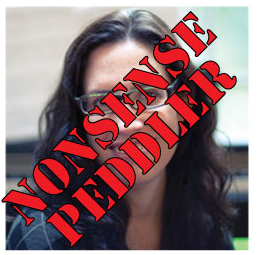Several years ago, I almost got into a fistfight with a friend while attending a speech by Malcolm Gladwell at the NCTM annual conference in Salt Lake City. What began this near melee was Gladwell’s assertion that Pablo Picasso’s innovations somehow “peaked” in his youth, while Cezanne was the example of someone who gradually refined his work until it achieved the excellence it was remembered for. I took exception to this assertion, mostly because the description of Picasso’s career is completely untrue: Picasso’s work was innovational through the many decades that he worked, and he continued to innovate up to the end of his life. The narrative Gladwell had created was based on the auction value of each artist’s works: apparently, early Picassos were more value than later ones, therefore his work early in his career was more innovative.
Unfortunately, this correlation that Gladwell created was a complete crock: the value of an artist’s work is based on a lot of complex variables, including the availability of the pieces from that period (I wouldn’t be surprised to find that PIcasso’s early work is scarcer than his later work), the buyers’ tastes (believe it or not, different styles of art go in and out of fashion like everything else, affecting their auction prices) and, last on the list, whether it was an example of the artist “at his best.” Clearly, Gladwell was out of his depth when it came to valuing artwork. If the facts don’t fit your story, don’t change the story; alter the facts.
Of course, this kind of irresponsibility is rampant among journalists of all stripes; our latest example is by Annie Murphy Paul, who has written yet another book on learning called “Brilliance: The Science of Smart.” I’m not going to criticize something I have not (and will not) read, but I did see Paul’s (or is it Murphy Paul?) latest column on the Time website to know that when something looks and smells like BS, it most likely is. Let’s read one of her choice quotes:
“Indeed, many experts who have observed the wide gap between the math scores of American and Chinese students on international tests attribute the Asian students’ advantage to their school’s relentless focus on memorizing math facts. Failure to do so can effectively close off the higher realms of mathematics: A study published in the journal Math Cognition found that most errors made by students working on complex math problems were due to a lack of automaticity in basic math facts.”
Where to begin? How about with the relentless use of the word “many,” which is used “many” times. “Many experts” are cited in the opening sentence – well, how many is it? Who are these “experts?” Did these “experts” really lay all the blame on the differences between Chinese and American students’ achievement in mathematics on math facts? And why is there no link to the article in Math Cognition, a journal which even I, a class A nerd of all nerds, has never heard of? Perhaps because the study was from, wait for it, 1999? Maybe it was the fact that the students were not actually working on complex math problems at all, but multi-digit addition problems? Maybe because the study looked at 3rd through 6th grade, and made no mention of how their data compared to Chinese students? This is a clear cut case of cherry picking data to fit a narrative. How Time allowed Murphy Paul to publish this packet of prevaricated nonsense is a mystery to me.

Addendum: When I alerted Murphy-Paul to the dubiousness of her claims, she both blocked me on her Twitter feed as well as blocked my emails. Well, I guess that puts her into a major Egyptian river (a.k.a. “da nile”).

Pingback: Annie Murphy Paul: She Ain’t So Brilliant |